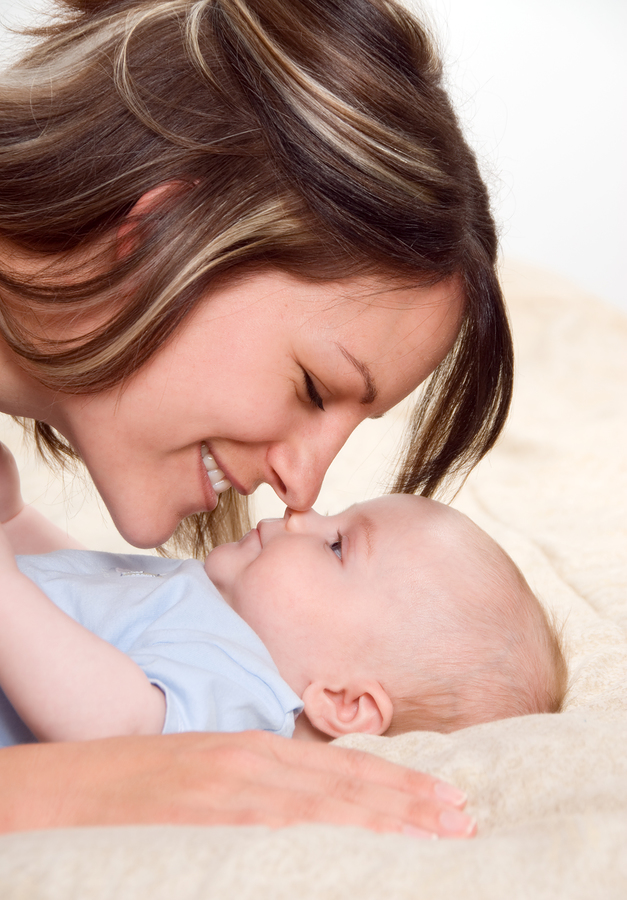 Do you ever wonder what newborns would say if they could talk? Where am I? What just happened? Who turned on the lights? Whew, that was a lot of work! I’m exhausted. Why is everyone staring at me? Do I have something on my face? Mom! Dad! It’s me! Truth is—most newborns all say the same thing: WaaaaWaaaa!
Do you ever wonder what newborns would say if they could talk? Where am I? What just happened? Who turned on the lights? Whew, that was a lot of work! I’m exhausted. Why is everyone staring at me? Do I have something on my face? Mom! Dad! It’s me! Truth is—most newborns all say the same thing: WaaaaWaaaa!
Of course, children aren’t born talking. However, even at birth, a child can usually respond to a mother’s voice, an early sign of communication, Speech and early language development involves both receptive language (what a child hears and understands) and expressive language (what a child says to others through sounds and gestures). Receptive language skills show up first as babies learn to turn towards interesting sounds or respond to tones and even their own names.
New Research: Improving Babies’ Language Skills Before They Can Talk
A new study from Rutgers University indicates that babies can be taught to better recognize sounds that “might” be language. This would increase brain development in the areas responsible for language acquisition and processing.
In the study led by Emily Benasich who directs the Infancy Studies Laboratory at Rutgers University’s Center for Molecular and Behavioral Neuroscience, the team found that when 4-month-old babies learned to pay attention to increasingly complex non-language audio patterns, their brain scans at 7 months old showed they were faster and more accurate at detecting other sounds important to language than babies who had not been exposed to the sound patterns.
“Young babies are constantly scanning the environment to identify sounds that might be language,” explained Benasich in a press release. “This is one of their key jobs – as between 4 and 7 months of age they are setting up their pre-linguistic acoustic maps….If you shape something while the baby is actually building it, it allows each infant to build the best possible auditory network for his or her particular brain. This provides a stronger foundation for any language (or languages) the infant will be learning.”
Take a look inside the Laboratory:
[youtube] https://www.youtube.com/watch?v=fJ3yZDoRwOs[/youtube]
Use Music to Support Early Language Development
In Kindermusik classes, we provide many opportunities for caregivers and babies to communicate with each other both verbally and nonverbally. For example, when we actively listen to a specific sound such as a clock sound or running water sound, integrate language and movement during a song, or use sign language, babies gain practice hearing words and making connections to their meanings—all which heightens babies’ abilities to communicate!

